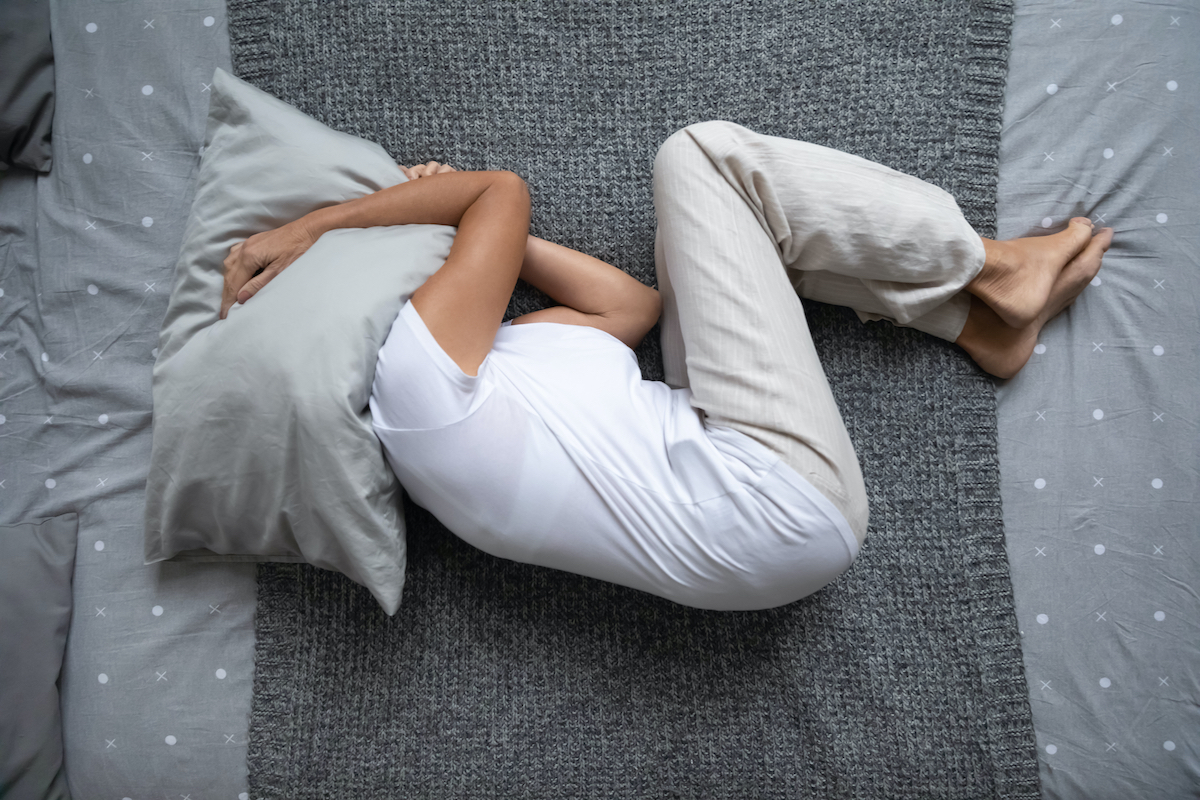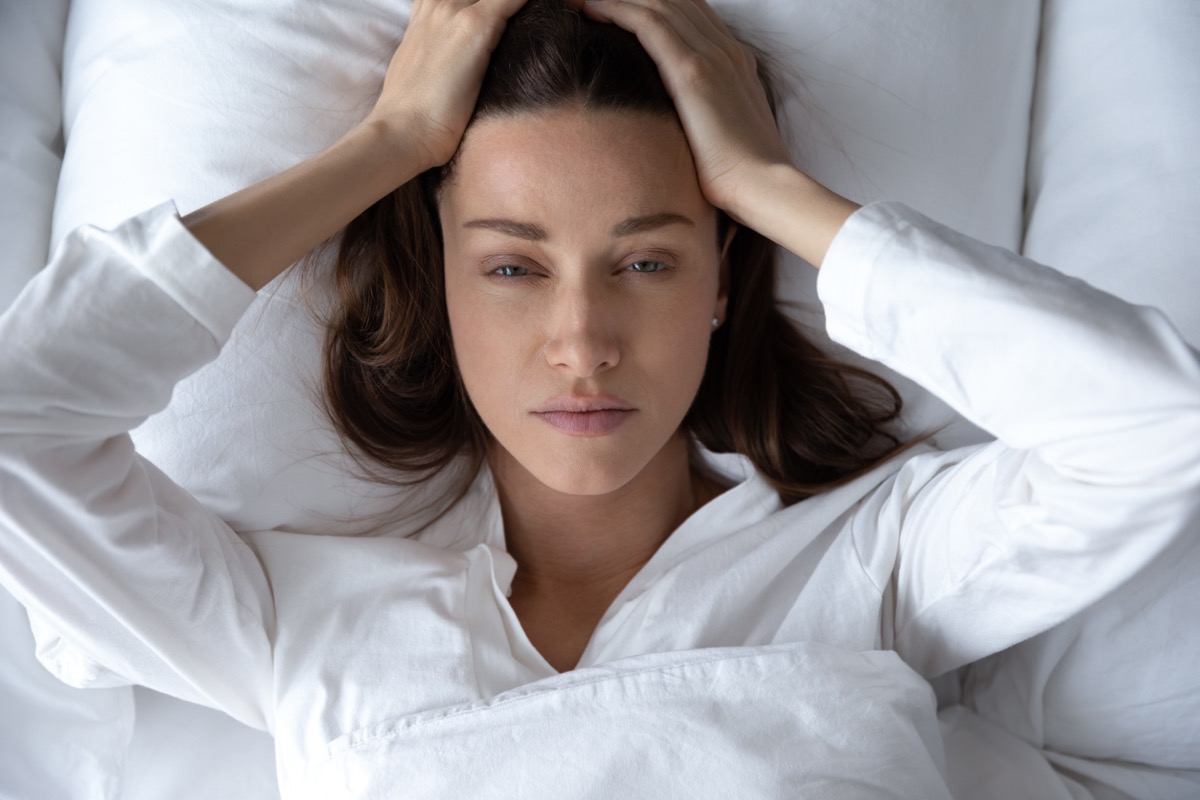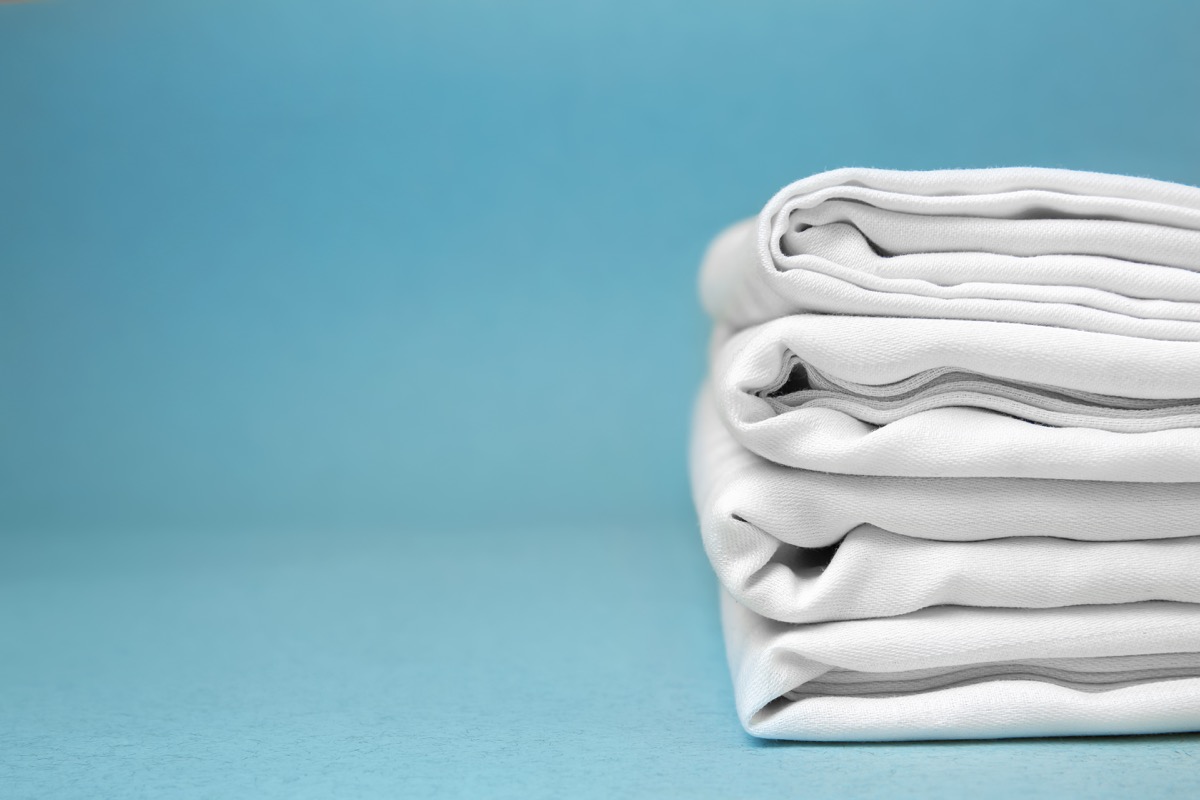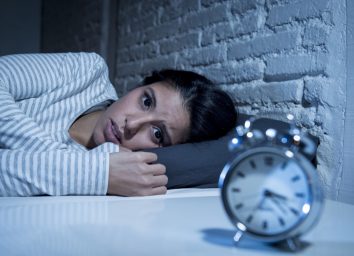4 Bedtime Habits That Are Harming Your Body, Says Science

How you spend the minutes before turning down for the evening is more important for your body and your long-term health than you probably knew. For instance, did you know that lazily heading to bed a half-hour later than usual can increase your heart attack risk down the road? Or that your sleep “associations” could be putting you on the path to addiction and depression? Or that your bedsheets could be crawling with things that affect your digestive system? Sadly, it’s all true. For just a few of the bedtime habits you shouldn’t be doing, read on. And if you have trouble sleeping these days, check out The Secret Trick for Going Back to Sleep After Waking Up at Night, Say Sleep Scientists.
You don’t keep a regular bedtime

While sticking a regular bedtime may sound a little childish for some, recent research has found that an inconsistent sleep schedule can make life a lot harder for your heart. A 2020 study from Notre Dame University published in the scientific journal Nature reports going to bed 30 minutes later than usual—or 30 minutes (or more) earlier than usual—results in a significant increase in overall heart rate.
“We already know an increase in resting heart rate means an increased risk to cardiovascular health,” comments lead study author and NDU professor Nitesh Chawla. “Through our study, we found that even if you get seven hours of sleep a night, if you’re not going to bed at the same time each night, not only does your resting heart rate increase while you sleep, it carries over into the next day.”
Hitting the sack later than usual appears to be a bit more detrimental; night owls saw their heart rate increase both overnight and the next day, while those who reported falling asleep earlier than usual only displayed an elevated heart rate overnight.
You’ve developed the wrong sleep associations

Sleep associations are usually a topic discussed for young children and babies. After all, we all know it’s tough to get babies to sleep at times, so sleep associations—such as lullabies, rocking, and reading books—are used to signal to the child that it’s sleepy time.
Grown-ups tend to develop their fair share of sleep associations, as well. Some are quite healthy, like a quick stretch or meditation session to unwind before bed, while others are not so much. Millions rely on substances like alcohol or prescription medications to fall asleep each night. The detrimental effects of alcohol on sleep quality, and physical health in general, are well documented. Moreover, recent research shows that prolonged use of benzodiazepines (Xanax, Valium, etc) is linked to an increased risk of deteriorating thinking skills and dementia. If you want better sleep associations starting immediately, don’t miss The Secret Trick for Great Sleep No Matter Your Age, Say Experts.
You’re not disconnecting

Today, if you wanted you could stay up all night learning Mandarin or researching the Crimean War, you can. Similarly, it’s that much harder to disconnect from the grind of the workday. However, habitually refusing to put your smartphone or laptop down before bed can lead to more nighttime stress and anxiety, even if you can fall asleep. Chronic stress can impact the human body negatively in many ways, including raising the risk of heart disease, weight gain, and depression.
If you use the “Night Shift” feature on your smartphone, which is designed to filter out the more wake-inducing blue light from your screen, you’re not fixing the problem. In fact, a new study found that the phone feature doesn’t actually work. What’s more, tech addiction is becoming recognized to the degree that Ireland recently passed a new law stating employers must respect employees’ right to disconnect after official working hours are over.
You’re not cleaning your bedsheets

This sleep mistake isn’t so much a bedtime error as it is a bedroom oversight. Pillows and sheets left to fester for weeks on end are the perfect breeding ground for various forms of bacteria and fungi, some of which can put you at a greater risk of developing or aggravating respiratory issues like asthma.
Still not convinced? This research out of the UK from 2018 even discovered that a particular strain of bacteria responsible for infectious diarrhea residing on hospital bed sheets survived a full laundry session. With that in mind, imagine what’s living on a comforter that hasn’t been washed! Most experts recommend that bedsheets be washed at least twice per month, but some go so far as to suggest changing your sheets every week. And for some great tips for getting better sleep starting tonight, don’t miss this One Simple Sleep Trick That Can Change Your Life, Say Doctors.








